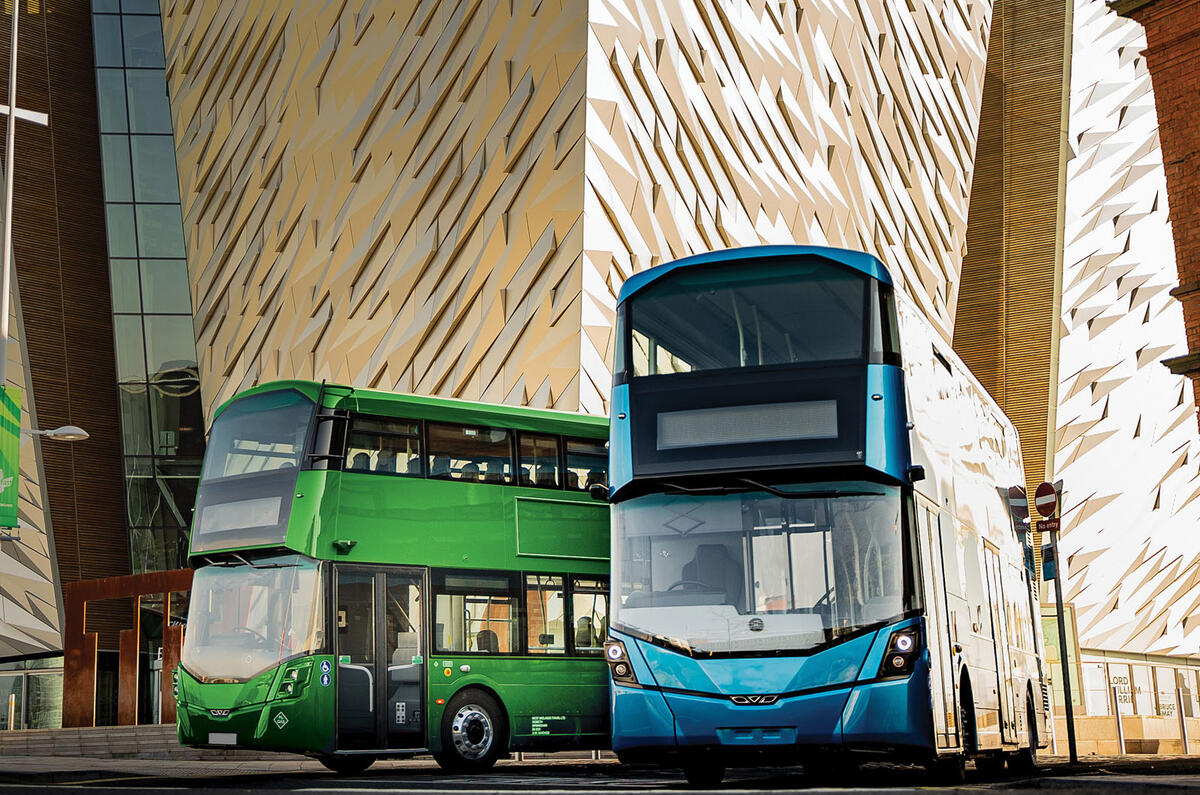The UK government has announced that it will invest £3 million to purchase 18 new electric buses for Leicester.
This latest round of funding brings the government's spending on the city's fleet through the Zero Emission Buses Regional Areas (Zebra) scheme to £22 million and its total number of zero-emissions buses to 114.
All will be manufactured by Wrightbus in Northern Ireland and operated by First Bus.
This will make Leicester one of just four UK cities to operate an all-electric bus fleet, joining London, Norwich and York, whose switch was announced earlier this month.
First Bus plans to have added 600 electric buses to its fleet by March 2024, with 117 of these being spread across Bramley and York, Hoeford (Hampshire), and Norwich. It will pay 58% of the total cost for these non-Leicester depots, with Zebra contributing the remainder.
“Through this co-funding with the Zebra scheme, we’re excited to electrify another five of our UK depots before March 2024,” said First Bus managing director Janette Bell.
![]()
Roads Minister Richard Holden added: “Buses are the backbone of our transport network, providing affordable travel for commuters, families and pensioners and providing an economic lifeline for towns and cities around the country.”
Holden also announced the creation of the Bus Centre of Excellence, an initiative planned to improve diversity and skills in the sector. Backed by an £815,000 government grant and hosted by the Chartered Institution of Highways and Transportation (CIHT), it will also create networking events for the bus industry and encourage the public to use buses more often.
CIHT president Neil Johnstone said: “This partnership, alongside other government initiatives, will see CIHT help to bring together a wide range of professional skills and knowledge from both the public and private sector to facilitate change to local infrastructure, service delivery and the sector across the country, with the ultimate aim of improving bus services.”
The new investments bring the government’s total post-pandemic spend on buses to £2 billion. A further £1bn is planned to improve the quality of bus services.
Read more: Analysis: Why the British bus industry is on the up







Join the debate
Add your comment
I don't believe in electricgate skikid, even if it is a thing, besides it's already been proved in this and other countries BEV's are less polluting and the majority of pollution is controlled rather than dumped on pavements. It must be something you made up.
PSA BEV vans are getting though tyres in 3000 miles, really, I suggest they get the tracking seen to or speak to tesla whose tyres last longer than performance ICE cars.
Anyhow back to double decker buses which is what the article is about, best target your rants.
Ev should be banne dif you believe electricgate this is the next scandal in a few years time pollution created to make the battery packs outweighs the fuel in alternatives our post office use subsidized ev Peugeot vans and they are getting through front tyres after 3ooo miles and the range is down to 70 miles in the cold weather if you do not have too much heating they have broken down at 60 miles not managig their daily round if too much heating is used.The range after only 2 years is also decreasing even in the summer ,ye sif ytou have a company car ev makes financial sense save £1200 tax a month and hav eone and buy your partner a one yr old Range Rover or X5 diesel with the saving that you can drive .Ev,s for everyone else is a white elephant with th weexrea costs an delecrticity price of 64p unit before rebate ev,s cost way more than petrol or diesel,When solid state surfaces with the significant weight and cost reductions I will re assess.
How long the roads will last ,they are bad enough as it is, but with ev weighing in at 400 to 500 kg more than ice lots of future problems not even considered.
New diesel double deckers should be banned today, gotta start somewhere and it's practical now.